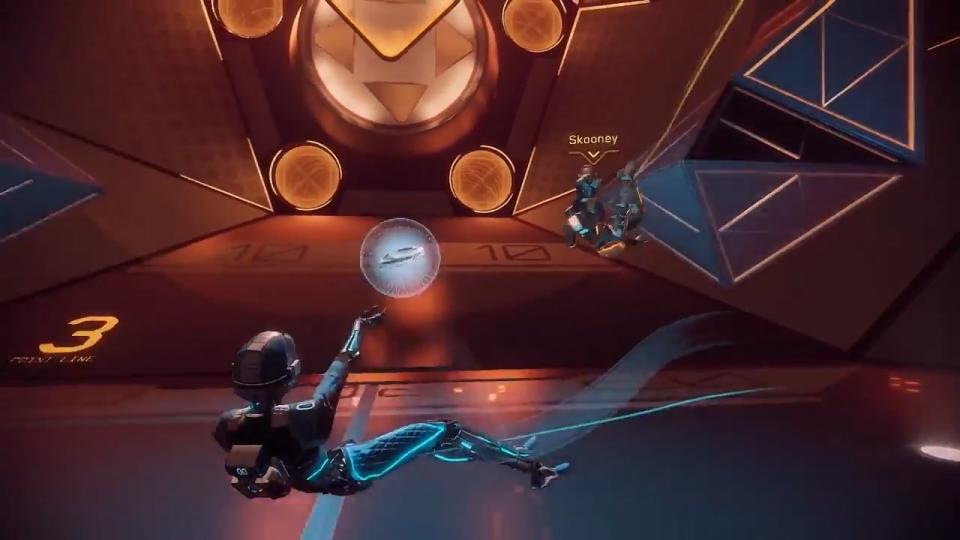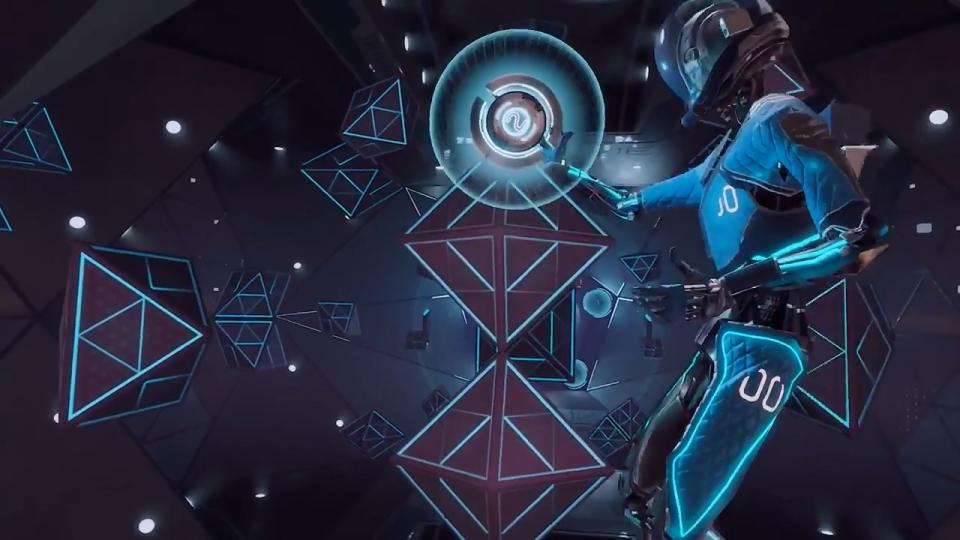‘Echo Arena’ is competitive, virtual reality frisbee in zero gravity
And half of Intel’s bid for a VR esports league too.
When we saw Lone Echo at Oculus Connect 3 late last year, it solved one of virtual reality's biggest limitations by ignoring humanity's most common form of locomotion: walking. The game takes place entirely in zero gravity, asking players to navigate its virtual world by pushing off bulkheads like an astronaut or using hand-mounted jets to fly around like Iron Man. It worked shockingly well and easily became one of our favorite games from the show. Intel must have thought so too: It just made the game's multiplayer component half of its new VR esports league.
Called Echo Arena, the multiplayer part of the space-exploration title pits teams of five weightless robots against one another in a frantic game of zero-g frisbee. The goal is pretty simple: Get control of the flying disc, avoid attacks from other players and toss the space frisbee into the opposing team's goal. Actually doing this is pretty hard. It's difficult to navigate four dimensions in itself, and the momentum of tossing yourself off a wall in zero gravity means it's exceptionally hard to catch a pass. With time and practice, it can be done -- but between the mechanics of the game and the VR experience movement model, there's a clear skill curve.
That's probably why Intel chose Echo Arena to be one of two games in its VR Challenger League. Starting in July, Intel and the Electronic Sports League will host a competitive VR gaming series in both online and localized events before a finale at the Intel Extreme Masters World Championship in Poland next year.
After half an hour of training and four quick rounds of Echo Arena, it's hard to say for sure if it'll be the Rocket League of VR -- but it's definitely a start. Playing the game absolutely feels sportlike. Carefully balanced offense and defense are necessary for winning a match, and when our team didn't work together, things fell apart quickly. But not all sports are fun to watch. Even after I played a few rounds of the game, I found being a spectator was difficult: It wasn't easy to tell what was going on from an outside perspective. And without spectators, VR esports isn't going to work out.

It's an issue, but not an insurmountable one. Live commentary and a solid spectator mode could go a long way toward making sense of Echo Arena as a spectator sport -- and Intel is serious about making VR esports viable. In all, up to $200,000 in prizes will be awarded to top players of Echo Arena and Insomniac Games' The Unspoken. That's a big investment.
Follow all the latest news from E3 2017 here!





